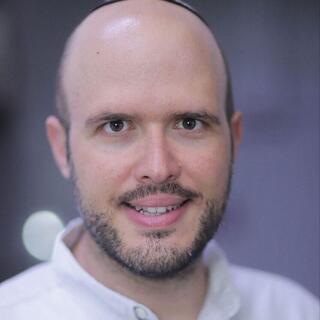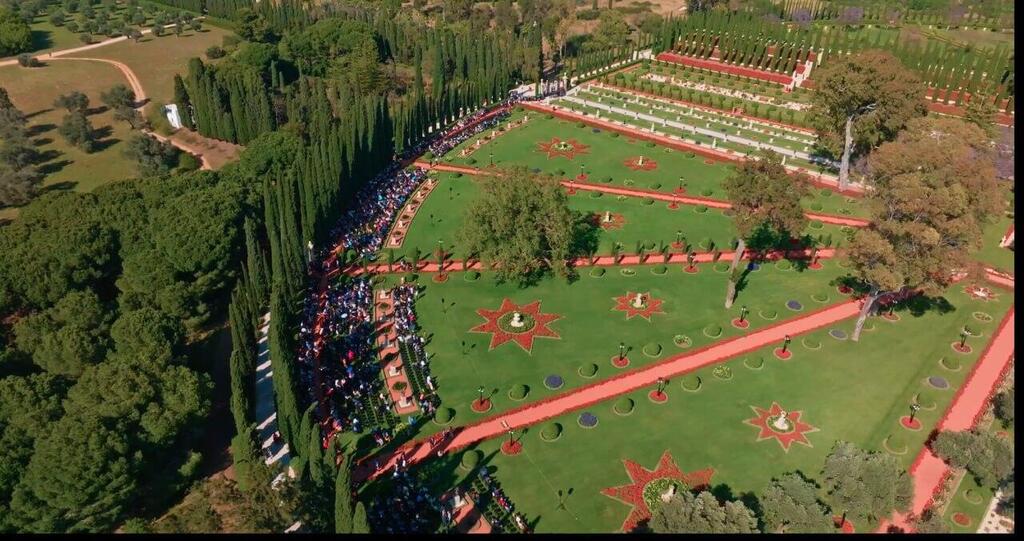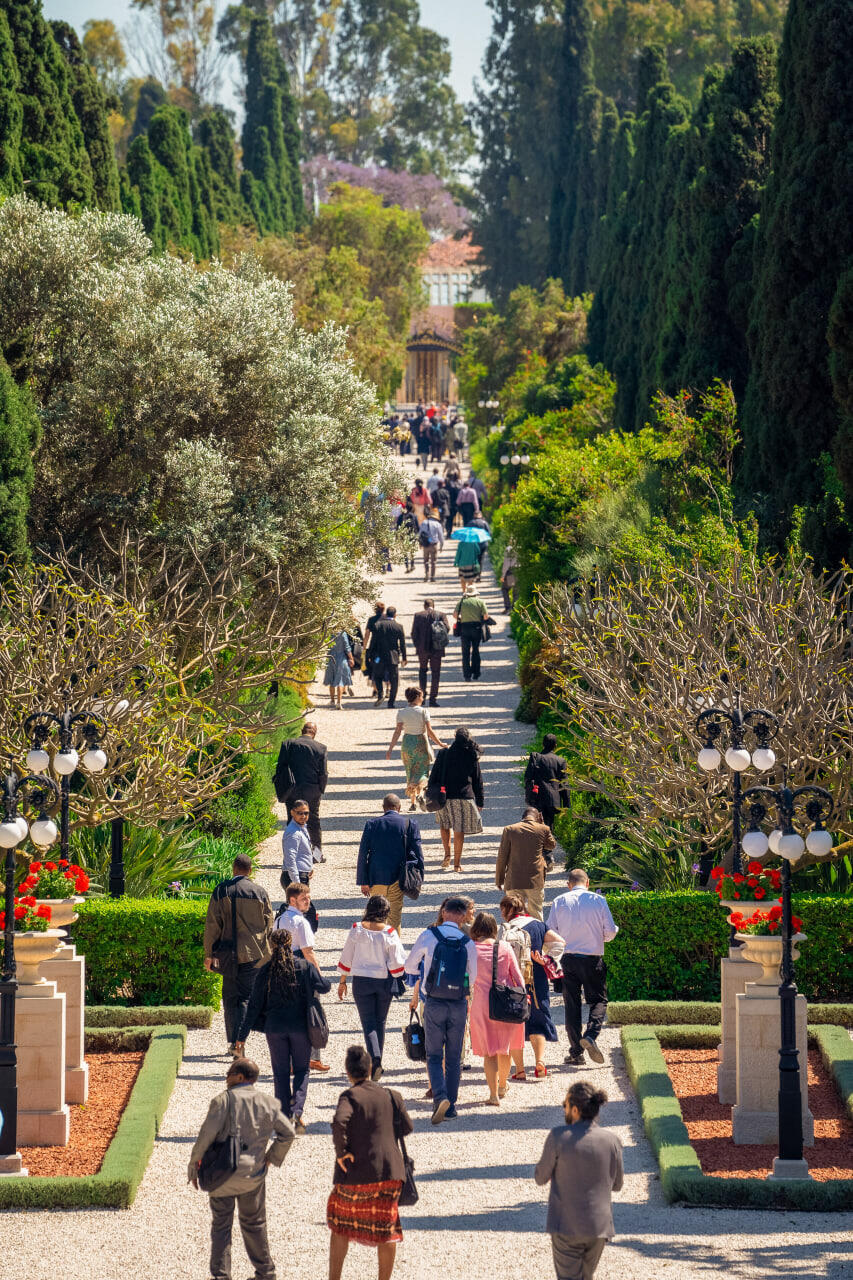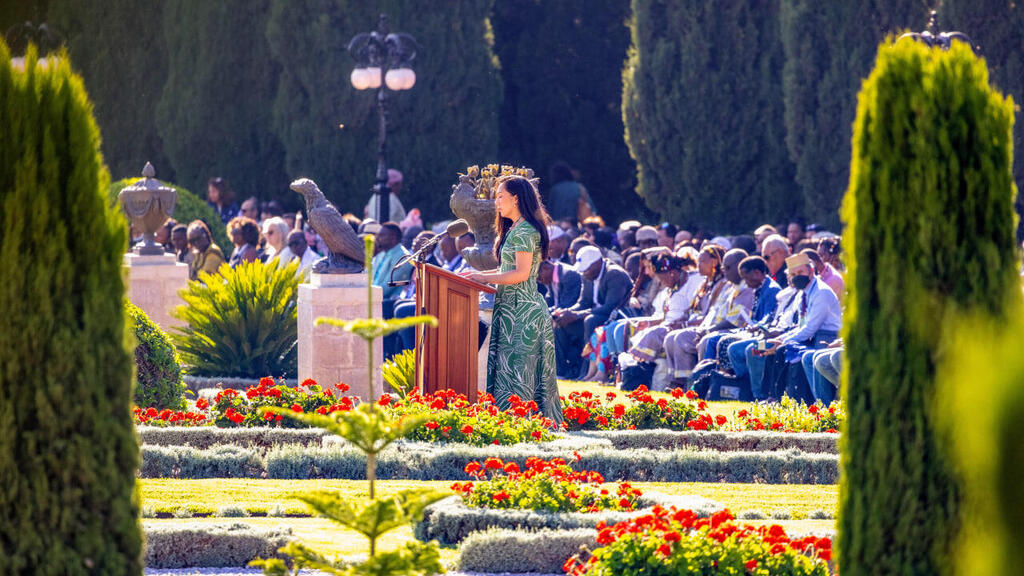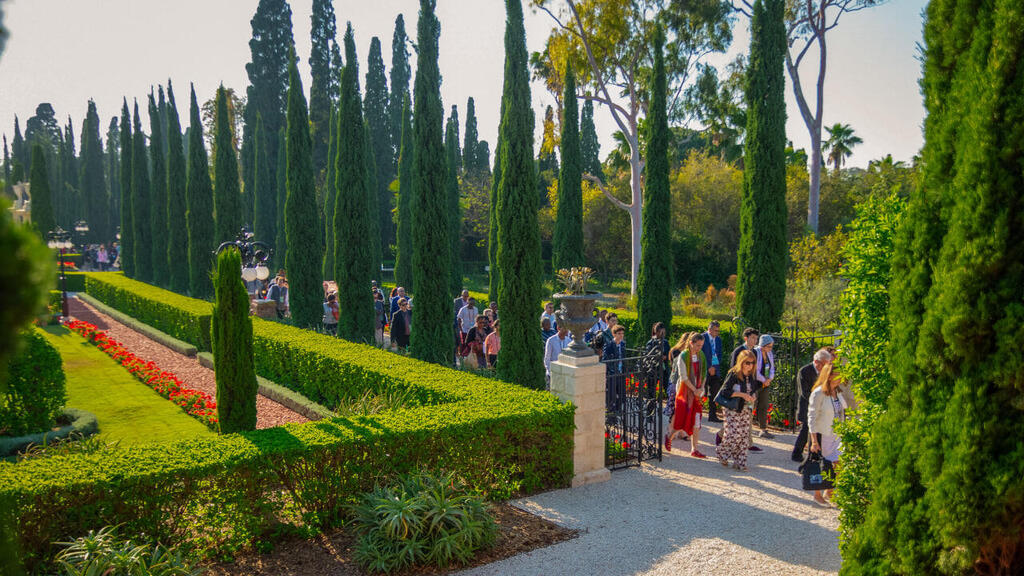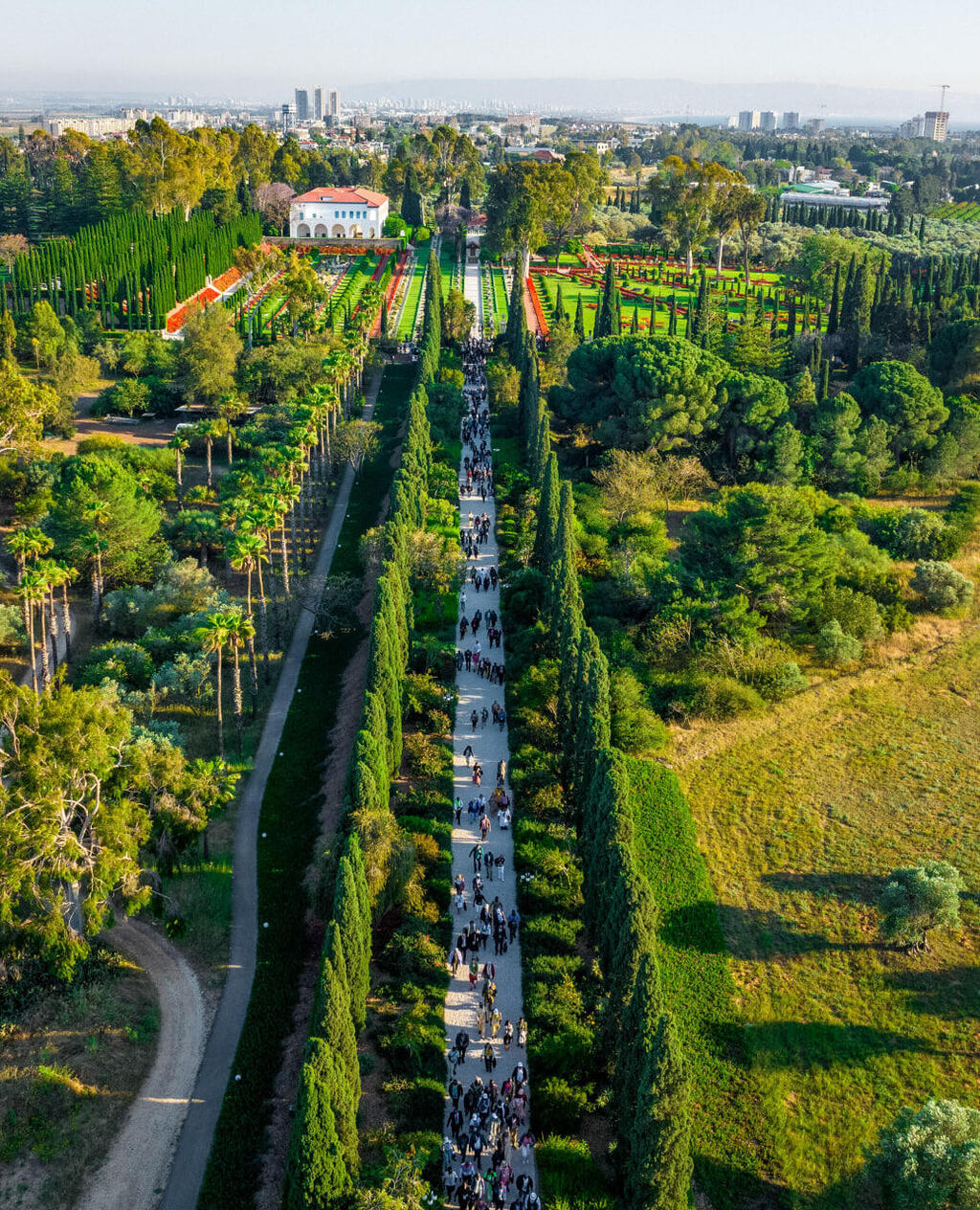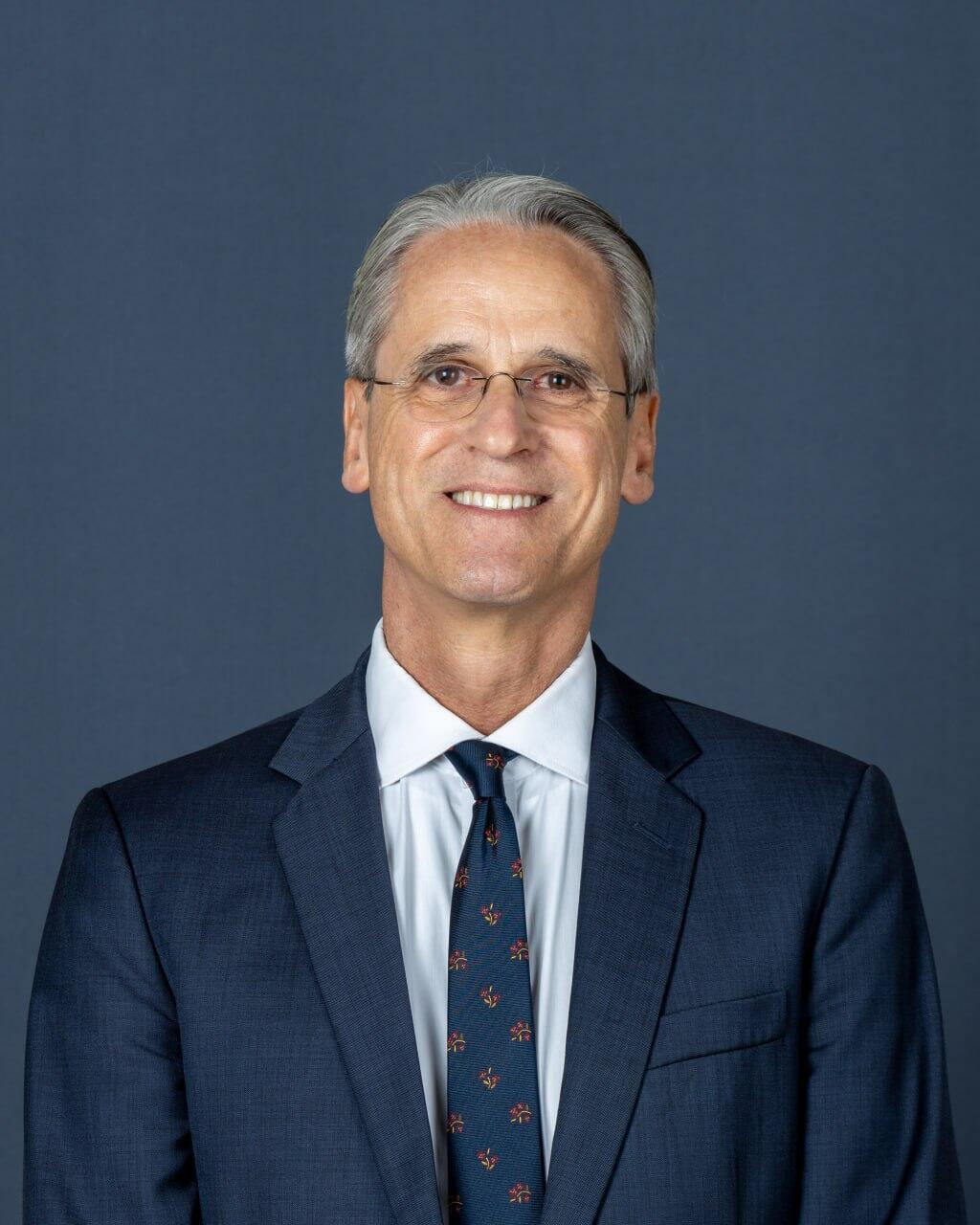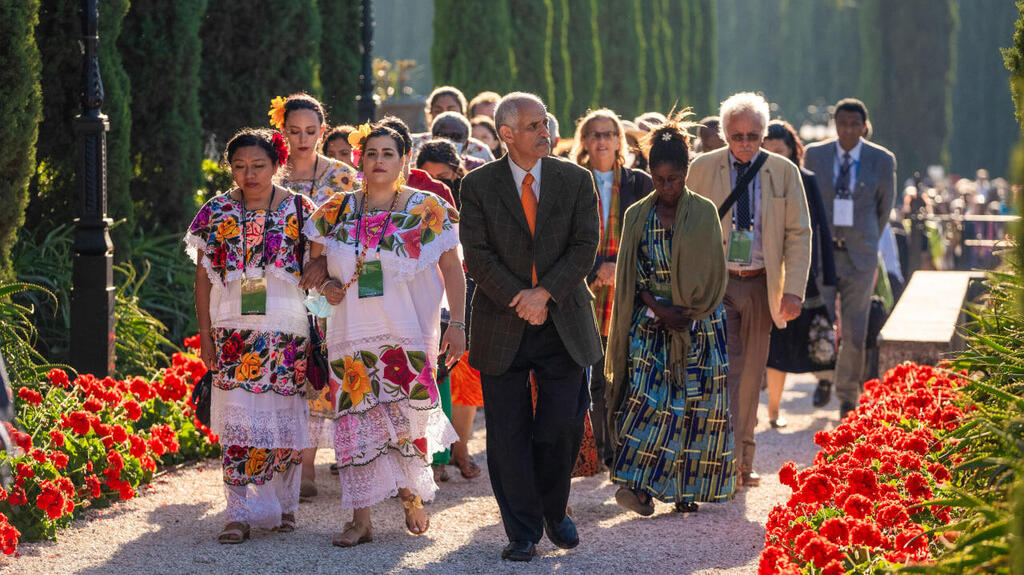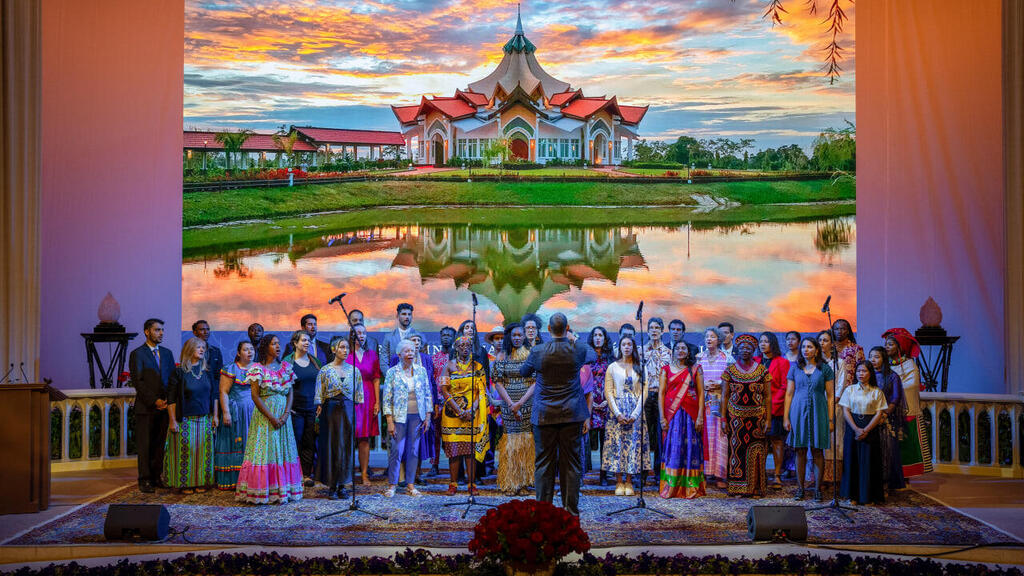Getting your Trinity Audio player ready...
Last week, on the fourth day of the International Bahá'í Convention held in Haifa, which takes place once every five years and has been ongoing for 60 years, the Bahá'ís who had gathered from around 170 countries held a prayer ceremony at their holiest place: the Baha'i Gardens in Acre where the religion’s prophet, Baha’u’llah, is buried.
More Stories:
"This is the holiest day in the year for us," whispers Dr. David Rutstein, the Secretary-General of the Bahá'í World Community, and reminds me that I should refrain from speaking in order to respect the ceremony’s sanctity.
The ushers in the area surrounding the grave, guide me to the heart of the compound in the front row, alongside the only two other Israelis participating in the ceremony: Ofer Amar, the Bahá'í World Centre’s spokesperson, and Dr. Shai Rozen, a researcher of the Bahá'í faith.
One after another, men and women ascend the stage and recite prayer excerpts from the writings of Baha'u'llah in different languages. The prayer ceremony marks the Day of Revelation and the official establishment of the Bahá'í faith by Baha'u'llah in Iran in 1863, which has over eight and a half million believers today.
The compound consists of hundreds of interconnected gardens adorned with colorful flower beds, meticulously crafted symmetrical patterns, and various elements designed to motivate prayers.
"These gardens are meant to show that God is present everywhere, and believers need to communicate with him directly, while reflecting on what good they’ve done today and how they can do better tomorrow," explains Dr. Rozen.
"The garden’s purpose is to provide one with tranquility and peace in order to connect with the divine through aesthetics."
In charge of the garden in Acre and ten other sacred Bahá'í sites in Haifa, Nahariya, Mazra'a, and Matah, are hundreds of volunteers from around the world who assist in maintaining them. Both this garden and its larger and more famous counterpart in Haifa were declared as UNESCO World Heritage Sites in July 2008.
Among the praying individuals surrounding us, some are dressed in colorful traditional attire from their respective countries of origin, joining in the chants and prayers with their eyes closed.
"It's amazing to see my fellow believers from all over the world gathering," says a participant who came from Tanzania. "I don't know them personally, but I feel like I do."
After the ceremony, everyone embarks on a long procession along a paved path, encircling the compound in silence. "The purpose of the gravel ground here is twofold: to screen out external noise and, because the walk is more challenging, it allows for a heightened spiritual state and preparation for approaching the resting place of Baha'u'llah," Dr. Rozen explains.
"These people have come to the holiest place in the world for them, with some of them painstakingly collecting money in order to come and pray at the tomb," says Rozen. "They also arrive from countries with which Israel has no diplomatic relations, but nonetheless Israel agrees for them to arrive.”
A religion without elections
The Bahá'í Faith is the youngest monotheistic religion in the world. In the mid-19th century, in Shiraz, Persia, the Bab (Gate), declared that a new prophet would come and bring messages of peace and equality.
The authorities in Iran weren’t sympathetic to the news and to the tens of thousands of followers who awaited the arrival of the new prophet. The Bab was executed in 1850 in Persia, and his body was hidden.
Later on, Baha'u'llah declared himself as the one foretold by the Bab. He was exiled to Baghdad and later to Istanbul, and ultimately imprisoned in Acre, the penal colony of the Ottoman Empire at the time.
Baha'u'llah passed away in 1892 and was buried in the Bahji Mansion, an estate in northern Acre where he resided in his final years. Since then, the site has been considered the holiest one for Bahá'ís. Before his death, Baha'u'llah appointed his son, Abdul Baha, as his successor.
Dr. Shai Rozen began his research on the Bahá'í faith in 2008, and this is the second time in his life he was allowed to participate in a closed prayer.
Rozen explains that "there are many aspects to explore in the Bahá'í faith. It’s a new religion, and the interesting thing about it is that through its development, one can see processes that occurred in older religions, 2,000 and 3,000 years ago, and learn from them."
Dr. Rutstein added the conference was a success. "In this unique event, representatives from all corners of the world chose the nine members of the international governing body of the Bahá'í Faith - the Universal House of Justice," he explains.
"Before their participation in the conference, they undergo a process of spiritual preparation, including time for prayer and contemplation in the holy sites of the Bahá'í's in Acre and Haifa, and visit historical Bahá'í sites."
The nine representatives selected for the Universal House of Justice work according to the mandate of the religion's founder, which stipulates that they should ensure the advancement of education worldwide, the welfare of humanity, peace, global prosperity, and the implementation of the teachings of the Bahá'í Faith.
"The Bahá'í electoral process is unique. It doesn’t involve parties, candidates, or election campaigns, and the voting is confidential," Rutstein explains. "In the Bahá'í Faith, we don't have rabbis, imams, or priests. Every year, in every city where there is a Bahá'í community, its members gather and write down the names of nine individuals they wish to lead them.”
“The representatives gather in their respective countries and choose the national leadership in the same manner,” he adds.
“The nine members of the national leadership come to Haifa and select the nine representatives for the global leadership in this conference, who are requested to relocate to Israel with their families. Since the first conference in 1963, none of the chosen individuals has declined to fulfill their service."
An up-to-date faith
Dr. Rutstein, the son of a Jewish father and a Bahá'í mother from the United States, came to serve as the faith’s Secretary-General of Community Institutions in Israel about five years ago.
"When Baha’u’llah came here, he was a prisoner and stated that it is forbidden to teach the Bahá'í Faith in the Holy Land, and since then we have not allowed the establishment of a Bahá'í community here or the teaching of its creed," he explained, giving the reason why Israelis can’t join.
"If there was a Bahá'í community here, we’d have to spend time caring for the local community while we want to care for the whole world. In addition, we want to preserve Israel, which we respect and love, as a Jewish state.”
“The Bahá'ís love Israel so much that if the Universal House of Justice allowed them to come here at any time without requiring approval, four million believers would come and want to stay here. We don't want to cause problems in Israel."
To be a Bahá'í , Rutstein explains that, "you only need to believe in your heart that your role is to serve and aid all of humanity. The Bahá'í faith focuses on three central principles: the oneness of God - despite his different names in all religions, it’s the same entity that guides humanity.
“The oneness of religion - all the major monotheistic religions were founded based on the same truth, and the Bahá'í faith is an 'updated version' of the chain of divine messengers: Abraham, Moses, Muhammad, Jesus, Krishna, and so on,” he adds.
“And the oneness of humanity - the belief that we’re all members of a human family, and there is no distinction between us no matter out gender, religion, or race."
Bahá'ís are required to choose their faith after a process of investigation and study of the scriptures of Judaism, Christianity, Islam, Buddhism, and others. At the age of 15, every boy and girl decide whether they want to be part of the faith or not.
"We’re not trying to convert people to become Bahá'ís," Rutenberg says. "We believe it’s the responsibility and personal quest of each individual to choose the faith to which they connect or belong."
Last month, it was reported that the Bahá'í Gardens Complex in Acre was closed to the general public following Acre’s municipality demand for property tax payments amounting to NIS 7 million per year.
The municipality argued that the gardens are considered a tourist site rather than a holy site since they host around 200,000 visitors each year who are not adherents of the Bahá'í faith.
The municipality’s decision has been the subject of legal discussions in recent years, but this year, the Bahá'í leadership realized that there was no alternative other than closing the gardens to the general public.
"It's not about the property tax payment," Rutenberg explains. "I told Acre’s mayor, Shimon Lankri, that the amount of money doesn’t matter to us. The problem is that the municipality decided that the Bahji estate is not a holy place, and we believe that they don't have the authority to determine that.”
“Just as synagogues don’t require to pay property taxes, we expect the municipality to treat our holy place in the same way," he said.
In response, the Acre municipality stated that it "appreciates and respects the Bahá'í community and recently approached the Interior Ministry with a request to exempt them from paying property taxes. Unfortunately, the requested exemption was not granted.”
“Currently, the matter is being discussed in an appeal, following its submission by the Bahá'ís regarding the tax, and no decision has been made yet."


